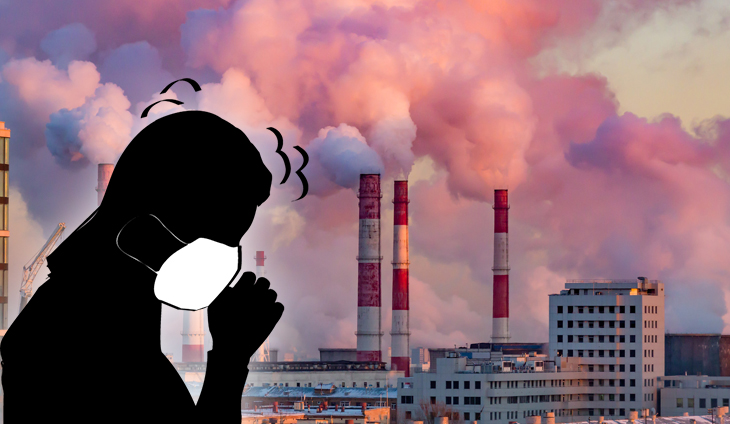Air pollution is a serious environmental health issue that affects individuals worldwide. It is caused by the release of harmful substances into the atmosphere from various sources such as industrial activities, vehicular emissions, and domestic heating. These pollutants can have detrimental effects on human health, leading to a wide range of acute and chronic respiratory, cardiovascular, and even neurological diseases. This article will delve into the various ways in which air pollution negatively impacts human health.
One of the most common health effects of air pollution is respiratory problems. Particulate matter (PM) and pollutants such as nitrogen dioxide (NO2) and sulfur dioxide (SO2) can irritate the respiratory system, causing inflammation of the airways and exacerbating existing respiratory conditions like asthma and chronic obstructive pulmonary disease (COPD). Prolonged exposure to these pollutants can also lead to the development of respiratory infections, decreased lung function, and an increased risk of lung cancer.
Furthermore, air pollution has been linked to cardiovascular diseases. Fine particulate matter (PM2.5) can enter the bloodstream through the respiratory system and trigger inflammation, oxidative stress, and the formation of plaques in the arteries. This can lead to an increased risk of heart attacks, strokes, and other cardiovascular events. Long-term exposure to air pollution has been associated with higher mortality rates due to cardiovascular diseases.
Air pollution also has adverse effects on children’s health. Children are more vulnerable to the harmful effects of air pollution due to their developing respiratory and immune systems. Studies have shown that exposure to air pollution during childhood can lead to reduced lung function, increased respiratory infections, and an increased risk of developing asthma. Additionally, air pollution can negatively impact cognitive development in children, potentially leading to decreased academic performance.
The impact of air pollution on mental health is an emerging area of research. Several studies have found associations between air pollution exposure and mental health disorders such as depression, anxiety, and neurodevelopmental disorders in both children and adults. It is believed that the inflammatory response triggered by air pollutants and the oxidative stress they generate can contribute to neuroinflammation and neurodegeneration, affecting brain health and function.
Moreover, air pollution has been linked to adverse pregnancy outcomes. Pregnant women exposed to high levels of air pollution are at a higher risk of preterm birth, low birth weight, and intrauterine growth restriction. Maternal exposure to air pollutants can also affect fetal development, leading to abnormalities in lung function and increased risks of childhood respiratory diseases.
The health effects of air pollution are not limited to the respiratory and cardiovascular systems. Studies have shown associations between air pollution and various conditions such as allergies, autoimmune diseases, and even certain types of cancer. The toxic components of air pollutants, such as benzene and polycyclic aromatic hydrocarbons (PAHs), can have carcinogenic properties.
Overall, reducing air pollution is crucial to protect and improve human health. Government regulations, industry practices, and individual actions can play significant roles in curbing pollution levels. Implementing emission control measures, promoting the use of clean and renewable energy sources, and improving public transportation systems can all contribute to reducing air pollution. Additionally, individuals can make small changes in their daily lives, such as using energy-efficient appliances, reducing car usage, and advocating for clean air policies.
In conclusion, air pollution is a significant threat to human health, affecting various organ systems and contributing to a wide range of acute and chronic diseases. The adverse effects include respiratory problems, cardiovascular diseases, impaired lung development in children, mental health disorders, adverse pregnancy outcomes, and increased risks of certain cancers. It is crucial to address air pollution comprehensively through collective efforts to safeguard public health and create a cleaner and healthier environment for future generations.


